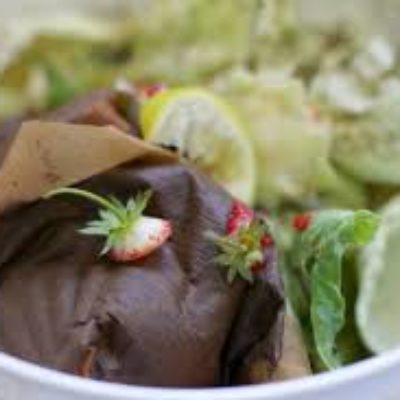Tag: biodegradable, brown bin, coffee cup, compostable, disposable, packaging Posted: Donal Date: June 12, 2019
Biodegradable and compostable packaging – rot or not?

I recently got a query from Plastic Free Kinsale, a wonderful community initiative that supports local people to reduce plastic consumption and increase recycling (check out their Facebook page).
The query was as follows:
Hi Donal, hope you are well. There was a great article in the telegraph newspaper about biodegradable plastic and composting recently. Tons of people messaged us about it – in the article it said that even compostable material in a brown bin isn’t ideal as mixing food waste and compostable material can be bad…I’m sure it’s not once heading to industrial composting but can you confirm or clear this up for me so that I can reply to her? Attached is a screen shot of her message to us on our PFK page

The article referenced is this one https://www.telegraph.co.uk/news/2019/06/06/biodegradable-plastic-misleading-will-not-break-compost-heaps/ which sets out the issues and confusions, but unfortunately does not distinguish very well the terms involved. There is a vagueness and perceived interchangeability between the technical terms “biodegradable” and “compostable”, but they do not necessarily mean the same.
So hopefully this article will help to clarify the issue.
Wikipedia states that
“Many people confuse “biodegradable” with “compostable”. “Biodegradable” broadly means that an object can be biologically broken down, while “compostable” typically specifies that such a process will result in compost, or humus. “
So “biodegradable” can mean many things, including but not limited to compostable. Non-compostable biodegradable materials can be made from plastic derived from crude oil, which has been treated to render it biodegradable.
“Compostable” materials are always made from plant-derived materials. Compostable materials when used commercially (as packaging, coffee cups, for catering purposes etc.) may be certified as compostable, and might carry a logo (e.g. the “seedling” logo which I will not reproduce here).
Okay, let’s simplify it. What does this mean for you, if you have these materials that you want to dispose of?
Compostable
Compostable materials can be put in your brown bin, and your waste collector should not have a problem with this. They will compost under the high-temperature composting conditions that brown bin waste is subjected to. All brown bin waste is composted quickly, in a managed high-temperature environment, to kill off pathogens and render the finished compost safe for use.
However, you may find that compostable items such as coffee cups, disposable cutlery etc. will not decompose in your home composting system. This is because they are made to be durable for use, and the lower temperatures in your home compost pile simply will not break down the materials, at least for a very long time.
You can also of course use compostable bags and bin liners for your organic waste. The same applies – they’re fine in the brown bin, but slow to decompose in your home compost.
Biodegradable
Biodegradable materials should not be put in the brown bin, as they may not be compostable. They should not be put with your recycling, as they may not be recyclable. So they should be added to your general waste for landfill, unless you want to try composting them at home – bear in mind that the news article linked above relates the story of a recent study by the University of Plymouth which found that biodegradable plastic bags were still capable of being used as bags three years after being buried underground because they had degraded so little.
Best option?
Avoid disposable containers where possible, whether they are compostable, biodegradable or whatever. Every disposable item takes unnecessary amounts of land, water, and energy to produce. It’s easy to keep a reusable coffee cup and washable cutlery in your car if you sometimes need to drink or eat on the go. We as consumers, and the relevant authorities, should also encourage vendors to facilitate customers bringing their own reusable containers and cutlery whenever possible.





